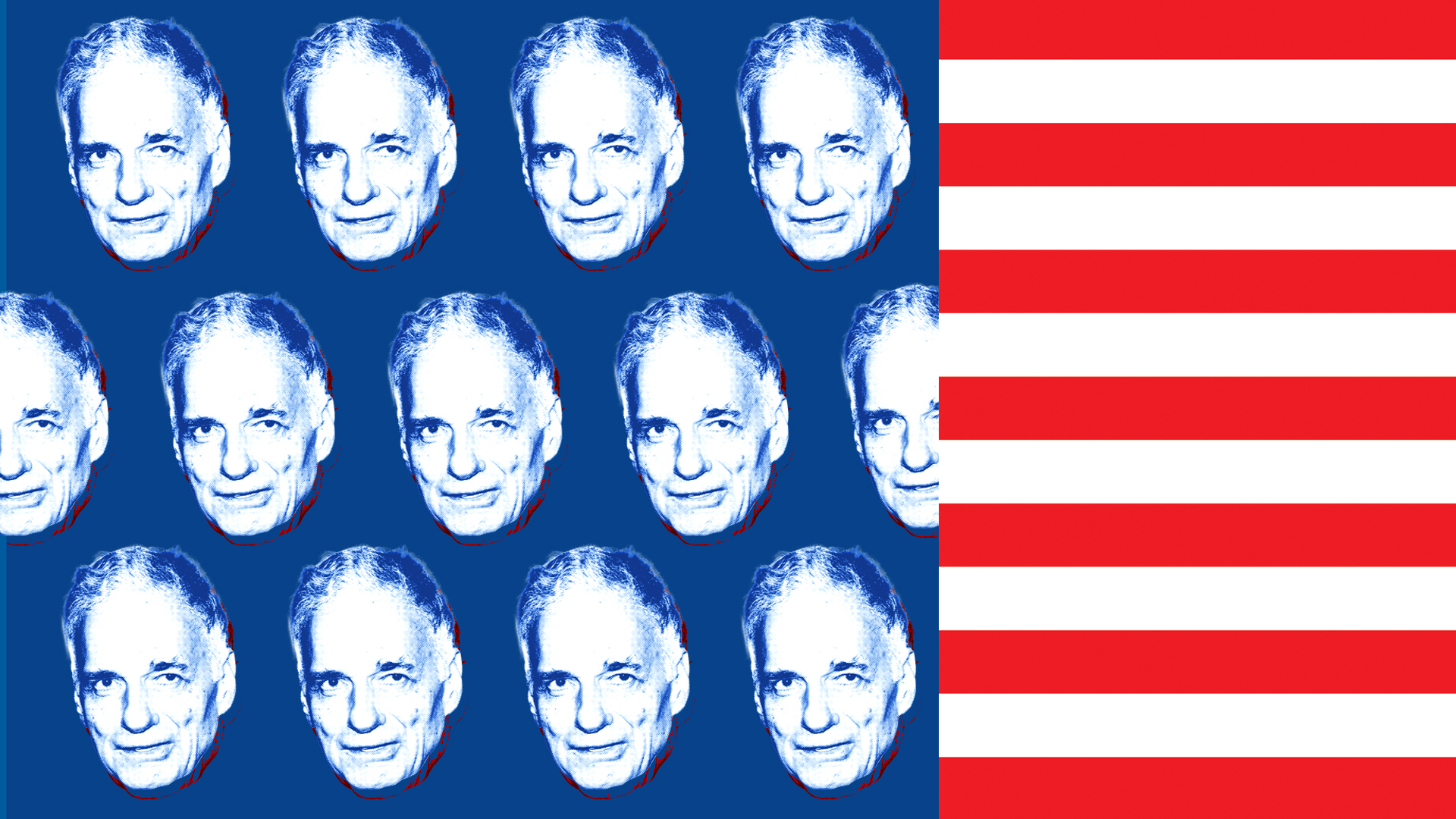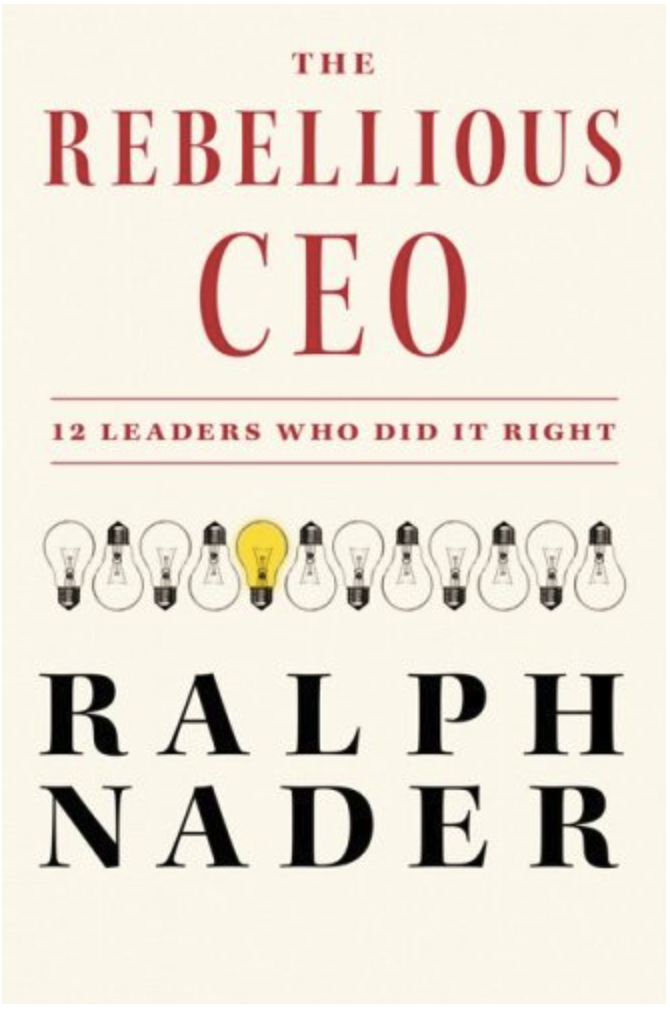“So you have repressed disgust with the Democrats, that has become a west coast / east coast liberal, college-educated-type party for professional people who work at screens, and this huge red area in the country with people thinking that they have been ignored. And they have been ignored.”
Ralph Nader knows more than most about the two-party duopoly and the consequences of rocking that boat, but first let’s go back to the beginning of his involvement in politics.
He remembers, as a young lawyer, heading to the White House on hearing JFK had been shot and seeing the helicopter carrying the body land on the lawn. In 1965, his campaigning led to the National Traffic and Motor Vehicle Safety Act, bringing in legislation on seatbelts, child seats, alcohol limits and build standards that have saved hundreds of thousands of lives across the US and other countries that followed suit.
Over the next decades, Nader was instrumental in the Freedom of Information Act, Whistleblower Protection Act, Clean Water Act and more, becoming the most prominent voice in America advocating for consumer protection, speaking out against the worst practices of big business and championing the emerging environmental movement.
He was named one of the most influential Americans of the 20th century by both Life and Time magazines. All of this meant he was a natural candidate for the top job in Washington, and in the 2000 election he ran representing the Green Party, securing 2.74% of the popular vote.
This doesn’t sound like a lot, but it had a huge impact on the result. If you recall, that was the election of recounts and hanging chads, as a close contest in Florida was destined to decide who’d be the next president. Bush defeated Gore by 537 votes in the Sunshine State; Nader had received 97,421 votes there. “Nader cost us the election,” said then Delaware senator Joe Biden.
Advertising helps fund Big Issue’s mission to end poverty
In this year’s election, a third candidate could throw the result into chaos again. Jill Stein plans to run for the Greens and, representing the dregs of a political dynasty, Robert Kennedy Jr could either damage Democrat chances or equally, his Covid conspiracies could attract some on the right.
Nader accepts the system is broken, if it ever worked properly to begin with.
“You can win the popular vote and lose the election because of this ridiculous, antiquated, vestigial thing that our founding fathers inserted in the Constitution.
“There’s a major movement to neutralise it through interstate compacts. California, Illinois and New York have already signed on saying they will give the electoral votes to anyone who wins the national popular vote. And when someone says ‘Hey, how can you do that – it’s in the Constitution!’ Well, also in the Constitution is that states decide the electoral rules and that overrides the Electoral College!
“Why am I emphasising this? Because you never would have heard of Trump again after 2016. He would have lost and gone back to being a failed gambling tsar.”
Ralph Nader has just published a book, The Rebellious CEO, profiling 12 business leaders who championed people and planet as well as profit. He doesn’t think he could write a book about 12 political leaders who do the same.
Advertising helps fund Big Issue’s mission to end poverty
“You can’t have dialogue in a society without comparison and contrast,” Nader says. “The media show the crimes and greed of CEOs, but they leave the public without a comparison as to how CEOs can make a good profit for their shareholders by treating their workers, consumers and the environment well. So I thought that it’d be good to get 12 who did it right in a whole variety of different sectors of the economy.”
One of these CEOs is Anita Roddick, who co-founded The Body Shop and helped bring The Big Issue to life back in the early 90s.
“She walked her talk,” Nader says. “She not only allowed her workers on company time to advance community or national or international causes, but she almost insisted on it. She criticised her industry, brilliantly. She knew what her mission was. Start at the community level and take it globally.
“Every day she would wake up thinking it was her last day on earth. That tells you a lot about her. That means no delay, no excuses, no inhibitions, no self-indulgence. She stands as a brilliant beacon of justice and enlightenment. I could only imagine what she would have accomplished in another 20 years.”
Most of the CEOs Ralph Nader profiles founded their own companies, but he believes any leader can shape the corporate culture of anywhere they work, for better or worse, but hopefully better.
“Corporations, whether they’re small or large, are very hierarchical. There’s enormous power in the hands of the CEO and the president, often the same person. So it is possible for CEOs and larger companies to do that. The question is, is it probable?
Advertising helps fund Big Issue’s mission to end poverty
“There are CEOs who can make very substantial changes. Some of them are just good business sense. While a few CEOs can turn around their company, more can turn them around in certain areas, in terms of sustainability or the way they treat their workers.
“Pretty soon other CEOs start getting the idea that that’s the way of the future. That you’re going to get penalised by public opinion turning against you if you don’t become more reflective of diversity in your workplace and benign treatment of the environment and respectful treatment of consumers.”
Ralph Nader adds that CEOs enjoy “a very intricate pattern of immunity and impunity for their crimes”. We speak before the latest incident involving a Boeing 737 Max aeroplane losing part of its fuselage mid-flight, but it’s an issue that came up in the discussion about corporate responsibility and accountability.
“I lost my grandniece in the Ethiopia Airlines Boeing 737 Max crash [in March 2019]. The families organised, they put some heat on the FAA, now they’re in civil litigation, but Boeing got the Justice Department’s criminal investigation to end up in a deferred prosecution of the company. That is, you know, be good for five years and you get off, just don’t do it again. Without a monitor, I might add.
“They didn’t prosecute the top executives who turned Boeing, in terms of its motivation, from an engineering company to a financial company, and degraded the engineering integrity of its products and its assembly line. Three hundred and twenty six dead people in Indonesia and Ethiopia. Highly publicised, and they got off.”
Ralph Nader makes the point in his book that despite the enormous wealth inequalities in our society, power – and the potential for change – is in the hands of the people.
Advertising helps fund Big Issue’s mission to end poverty
“The bulk of private wealth is highly concentrated in the top 1%. But the wealth that’s in public land, trillions of dollars of government research and development that built all these industries: aerospace, biotech, nanotech, computers, internet, people have been kept from understanding that they own the most valuable assets in the country. So if we want real change, we will make a political movement to show people that all they need is to control what they already own.
“It comes back to the people. If the people are otherwise preoccupied, then they’re going to get the autocracy and the fascism.
“We’re at the low ebb in civic engagement. Then there’s AI, social media. I mean, this is a cataclysmic abduction of human-to-human interaction. And that’s one reason why there’s so little civic opposition to empire, to Wall Street, to stagnant standards of living, to horrendous poverty in a land of plenty.”
The Rebellious CEO: 12 leaders Who Did It Right by Ralph Nader is out now (Melville, £29.99).
You can buy it from The Big Issue shop on Bookshop.org, which helps to support The Big Issue and independent bookshops.
This article is taken from The Big Issue magazine, which exists to give homeless, long-term unemployed and marginalised people the opportunity to earn an income. To support our work buy a copy!
Advertising helps fund Big Issue’s mission to end poverty
If you cannot reach your local vendor, you can still click HERE to subscribe to The Big Issue today or give a gift subscription to a friend or family member.
You can also purchase one-off issues from The Big Issue Shop or The Big Issue app, available now from the App Store or Google Play







